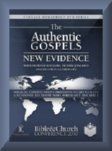‘I believe in … the holy catholic church; the communion of saints’
Timothy Cross continues looking at the Apostles’ Creed
There is a vital communal aspect to the Christian faith, often overlooked. Whilst individual, personal faith in Christ is indispensable for salvation, the idea of Christians choosing to remain isolated from other Christians is foreign to the New Testament.
The ‘church’ refers to people (Philemon 2). It is the collective term for those people for whom Christ died. Christ died ‘to purify for himself a people of his own’ (Titus 2:14).
The Greek word for ‘church’ literally means ‘called out ones’. The church consists of those who have heard the call of God in the gospel and been enabled by God’s grace to heed that call and believe in Jesus.
The Bible uses many different word pictures to describe Christ’s church, for example: sheep in Christ’s flock; children in God’s household; members of Christ’s body; and living stones in God’s temple, with Jesus Christ as the chief cornerstone. All these portray the interdependence of the Christian life.
The New Testament uses the term ‘church’ in differing ways. It can refer to the sum total of Christians throughout the world, or a local gathering of believers meeting for worship – to hear God’s Word, pray, praise and partake of Christian sacraments. It can also refer to the church triumphant in heaven.
The church militant on earth has both invisible and visible facets to it. The invisible church consists of true believers, known ultimately to God alone. The visible church may contain some hypocrites though – those who appear outwardly Christian, but have never been born again by God’s Spirit.
Holy
The church is ‘holy’.This derives from her relationship with God, who alone can be described as perfectly ‘holy’.
The word ‘holy’ means ‘set apart by God for God’. So, unlike any other human society, the church of God consists of ‘saints’ or ‘set apart ones’; set apart by God for God’s glory!
They are the special objects of divine favour, ‘chosen and destined by God the Father and sanctified by the Spirit for obedience to Jesus Christ and for sprinkling with his blood’ (1 Peter 1:2).
The church is also ‘catholic’. But this has nothing to do with Rome! This word simply means ‘universal’ or ‘all-embracing’. It is a reminder that there is only one church of the Lord Jesus Christ on earth and in heaven, as there is only one Saviour and one way of salvation.
The one-ness of the church and the unity of all true believers stems from their union with Christ.
This means that the church transcends national and denominational ties, and even time itself. The redeemed in glory comprise ‘a great multitude which no man can number, from every nation, from all tribes and peoples and tongues’ (Revelation 7:9).
There can only ever be one true church, for ‘there is one body and one Spirit, just as you were called to the one hope that belongs to your call; one Lord, one faith, one baptism, one God and Father of us all, who is above all and through all and in all’ (Ephesians 4:4-6).
Communion
The Apostles’ Creed also describes the church as ‘a communion of saints’. This phrase refers to the common participation that Christians have in the saving blessings and benefits of Christ.
Christians have a close, mutual relationship with God and one another. They have a shared experience of God’s saving mercy, and are united in their zeal for God’s glory and for mutual encouragement in the things of Christ.
‘Fellowship’ then is the word which encapsulates the ethos of the true Christian church – fellowship with God through Christ and with one another ‘in Christ’ (1 John 1:3). Hence the early converts ‘devoted themselves to the apostles’ teaching and fellowship, to the breaking of bread and the prayers’ (Acts 2:42).
Those who love the Lord Jesus Christ will love his church and give physical expression to their faith by associating with those of ‘like precious faith’ (2 Peter 1:1). They will desire to meet with a local company of God’s people, and gather on the Lord’s day to hear his Word and exalt his Son.
When we meet with God’s people, the Lord Jesus meets with us too! He has promised ‘where two or three are gathered in my name, there I am in the midst of them’ (Matthew 18:20). We neglect the church to the detriment of our soul’s well-being.
John Calvin wrote: ‘For those to whom God is Father, the church must also be mother … We have to remain under her control until, at death, we become like angels … Our frailty ensures that we do not leave this school until we have spent our whole lives as pupils … So abandoning the church is always fatal’ (Institutes).




















